In 2020 I wrote a biography of golden age illustrator Mead Schaeffer published by the fine folks at The Illustrated Press.
As part of that process, Schaeffer's daughter loaned me his personal scrapbooks. He proudly hand lettered large, heavy volumes where he preserved clippings of every published work, along with personal correspondence, notes and memorabilia.
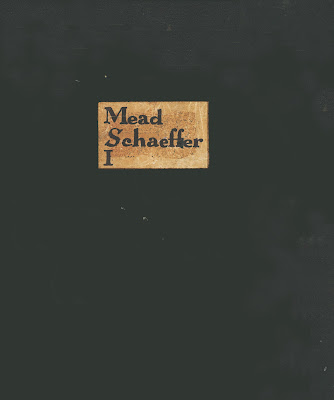 |
| Volume I, the first of a series |
The scrapbooks contained dozens of strong illustrations where glue stains and wrinkles prevented us from reproducing them in the book.
In addition, the scrapbooks contained old photos from the life of an illustrator in that golden age. Below is a photo of a small party with next door neighbor and good friend, the young Norman Rockwell (standing in the doorway). Schaeffer is on the sofa at the far right.
In an era before internet research, illustrators traded hand drawn letters sharing historical information such as clothing and furniture styles. Here is a note from illustrator Norman Price with needed information about French costumes:
Of course, much of the research for illustrators in those days was done with field trips, sometimes to remote and exotic locations. During World War II Schaeffer received clearance from the Department of Defense to accompany military ships and planes for a series of covers for The Saturday Evening Post.
 |
| A tattered souvenir of an adventure on a Navy ship |
Here are Schaeffer and Rockwell on a roadtrip checking out a site for a painting:
Unused preliminary sketches and reference photos also made their way into Schaeffer's scrapbooks:

There are also plenty of reference photos of Schaeffer posing for his own illustrations:
Schaeffer also glued in his correspondence with the authors of the fiction he illustrated.
Today an illustrator's scrapbook is more likely to consist of digital files on a laptop. Jpegs don't yellow with time or stain with rubber cement, but then again they lack the heavenly smell of thick, aging paper.
So much of Schaeffer's life wouldn't fit in the 224 pages of the Schaeffer book, I'm pleased to share a little more of it on this blog.



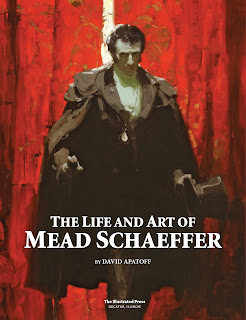



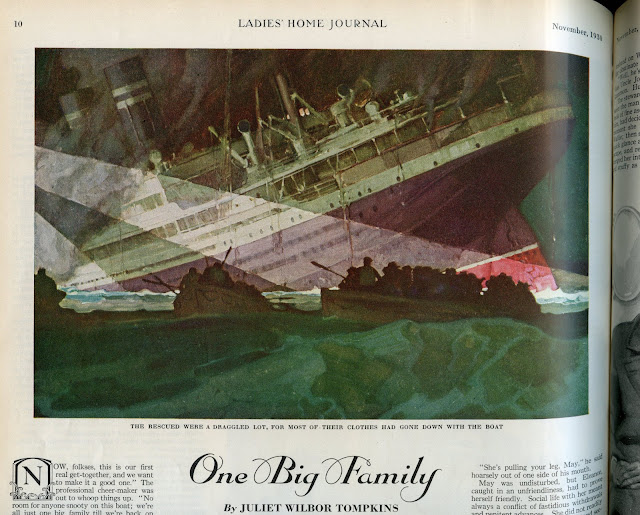

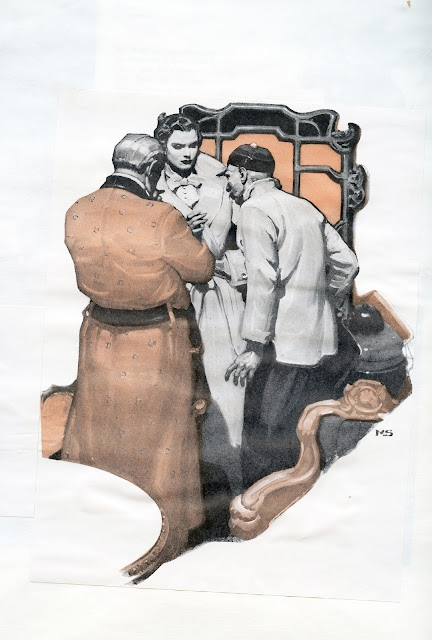

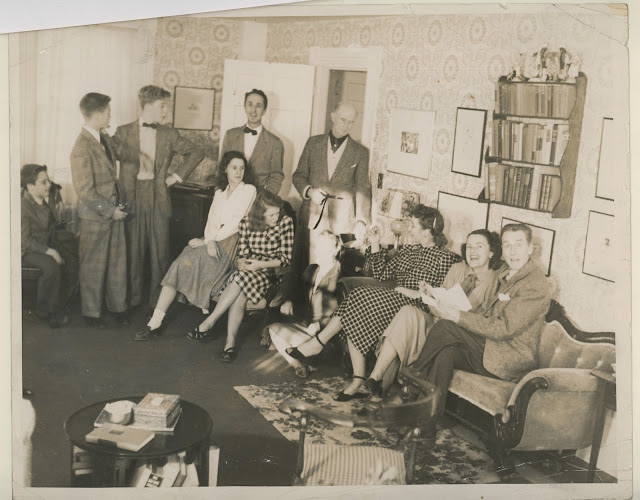
.jpg)



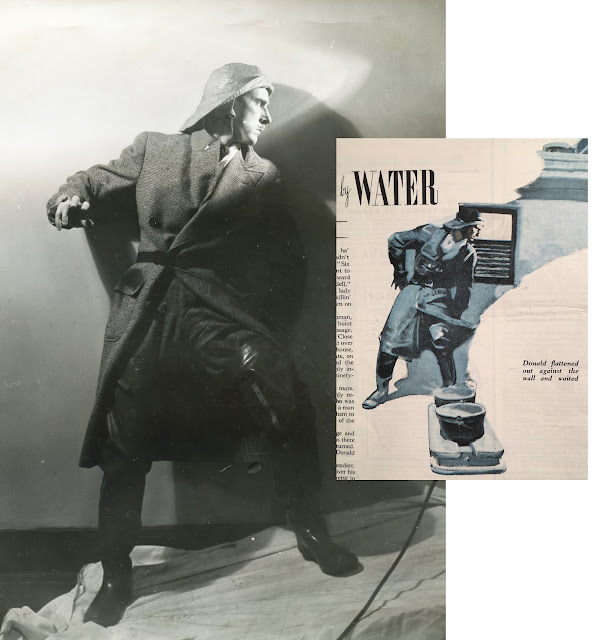



Much appreciate those (mostly) "Golden Age of Mead Schaeffer" images. This being that digital era you mentioned, I'll clip and paste them into my Mead Schaeffer digital folder.
ReplyDeleteBy the way, some of those 1930s women seem pretty familiar. Were they depicted elsewhere in the same magazine stories, or did Schaeffer use the same model in different projects?
Thanks for sharing so much, David!
ReplyDeleteThanks for sharing all of this, David!
ReplyDeleteThe two "White Brigand" illustrations have been on the Internet for a while. It seems that I downloaded them from somewhere on 7 February 2014. So no wonder that woman looked familiar. Those two are nice vignettes, and apparently Schaeffer felt it worth his while to maintain reference to them.
ReplyDeleteThank you for sharing these David, much appreciated.
ReplyDeleteThe dancing couple is badass in more ways than one...
Jealous of this great access you have to the masters’ archives! So much knowledge in there
ReplyDeleteDonald Pittenger-- Your question about the female model will be answered in the next installment-- "artists in love."
ReplyDeleteAnonymous-- My pleasure. That's why I do this.
George Pratt-- Good to hear from you, and glad to hear you appreciate Schaeffer's story. Hope you're doing well.
chris bennett-- Thanks, looking at the personal record of a life in the golden age of illustration is quite an experience. It was a different world back then.
ReplyDeleteRichard-- There are so many rich stories in these materials about illustrators comparing notes, seeking assignments, working together. There was a little artists colony living side by side in Vermont, not just Schaeffer and Rockwell but Atherton and others. After a day of painting, they would often assemble on the lawn for drinks in the later afternoon-- a generation of talent.
Thank you. Great to see this material.
ReplyDeleteFantastic stuff! Great share, it must have been a real thrill going through it.
ReplyDeleteThanks for bringing it out for us to see—
Wow, David, these are wonderful. Thanks so much for sharing!
ReplyDelete> After a day of painting, they would often assemble on the lawn for drinks in the later afternoon-- a generation of talent.
ReplyDeleteThat seems to be a common thread any time you have an artistic renaissance. I’m led to wonder which is the chicken and which is the egg?
Do great artists naturally conglomerate? Or does the conglomeration make great artists? Does one great artist create a conglomeration which produces many great artists?
For all our talk of replicating technique, perhaps we’d be better off spending more time trying to figure out how to replicate the afternoon cocktails if we’d like to see a new golden age.
Even Mr. Schaeffer's preliminaries outclass anything today's illustrators come up with. And the photos prove that photos should be a starting point for a great illustrator not the be all end all. Fantastic stuff.
ReplyDeleteLove it all. Thanks for sharing.
ReplyDeleteThe registration marks pasted up on the parachutist sketch would seem to indicate that it was published.
This is fantastic, thanks for sharing!
ReplyDeleteI recently found Mead Schaeffer’s original painting of the Lobstermen at an estate sale of a descendent of JP Morgan. It’s an absolute treasure and amazing in person.
ReplyDelete